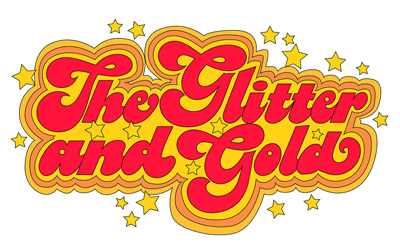Artists’ legacies often outlive them. But can their work be taken further? In April mental health awareness organization Over The Bridge hinted at an intriguing, if not a little disturbing, possibility.
The Lost Tapes of The 27 Club
Using Google’s Magenta artificial intelligence program Over The Bridge analyzed as many as 30 songs from Amy Winehouse, Kurt Cobain, Jimi Hendrix, and Jim Morrison. After studying these artists’ vocal melodies, chord changes, guitar parts, drum patterns, and lyrics, the AI program set to work creating new songs. These were based on what the AI predicted the artists would have written had they not met their untimely deaths at age 27. The results, titled Lost Tapes of The 27 Club, made news headlines across the world.
As these AI recordings did, I myself found myself wondering what it all means. From Tupac‘s 2012 Coachella performance to Roy Orbison‘s box office-breaking hologram tour, new technology has brought the music of many departed artists back to life over the past decade. While questionably respectful, these projects have often proven highly profitable.

Kurt Cobain.
Is AI Songwriting a Good Thing?
The Lost Tapes of The 27 Club raise an interesting question. Accept for a moment our bodies, brains included, are organic machines. If this is the case, is it not possible for technology to replicate the creativity of our fallen stars?
Can AI songwriting really be a valid addition to an artist’s work? Or, at the very least, give us something to listen through once we have gone through all of these artist’s B-sides, bootlegs and Greatest Hits? Looking to know more I asked two Brisbane musicians their view on the situation.

Lunchtime’s Eden Grafos on AI Songwriting
Eden Grafos fronts Brisbane band Lunchtime. “I heard about that and I had pretty strong feelings,” she shared with me. “I absolutely hate the idea of it. It doesn’t matter how close the computer can get the sound or lyrics to sound the same. The musician didn’t write it.”
Eden expressed her support for greater awareness of mental health issues within the music industry. Ultimately though she felt a project like the Lost Tapes of The 27 Club was not the best way forward. “My issue is that they are using Amy and Kurt’s voices without their permission,” she added, “they aren’t here to give it themselves.”
Grafos was also concerned with the 27 Club label being used as a marketing strategy. “I feel like it could backfire,” she contended. “A lot of impressionable teens could idolize that and copycat. The idea of substance abuse and dying young is promoted in a way, even if that wasn’t the intention.” Eden’s own band will explore the topic of mental health with the forthcoming music video ‘All in a Row’. The clip is arriving June 4th.
Lara Thompson of Cheap Date is Sceptical
Lara Thompson leads a newly established 5-piece Brisbane band named Cheap Date. Outside music, Lara has a strong interest in humanitarian work. She has conducted several fundraisers for Australian charities.
“I love the general idea of it,” she shared. “But there is something a bit off about releasing music that the artist didn’t nod to.” Lara’s reaction has been mixed. “Regardless of the cause,” she stated, “I think it’s an amazing feat. I’m just not sure how to feel about it.”

Can AI Songwriting Catch On?
Astounding technological innovations often capture our attention. Not all of them catch on. Lightbulbs, personal computers, televisions, airplanes, bicycles, cars, and even umbrellas were all ridiculed before finally becoming part of our everyday lives. Even recorded music, invented by American Thomas Edison in 1877, was dismissed as a novelty. Some superstitious critics even demanded the technology banned on the basis it was attracting ghosts.
It was only through savvy publicity campaigns that many of our most useful innovations became accepted. If the thoughts of Lara and Eden are anything to go by, those who love music are not rushing to embrace the Lost Tapes of The 27 Club with open arms. The idea technology can offer a substitute for fallen idols is an uncomfortable proposition.
Final Thoughts
Over The Bridge’s use of members of the 27 Club has won them widespread attention. Yet as Cheap Date’s Lara Thompson points out, there is a darker side to the Lost Tapes of The 27 Club as well. Promoting the myth of the 27 Club, even for a good cause, carries risks. How many promising young artists have been drawn down the club’s dark and tragic path in a bid to emulate their idols? Lost Tapes of The 27 Club may run as much risk of luring musicians to their doom as it does opening up conversations about their mental health.









